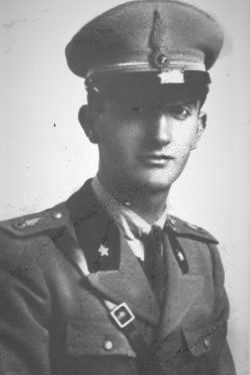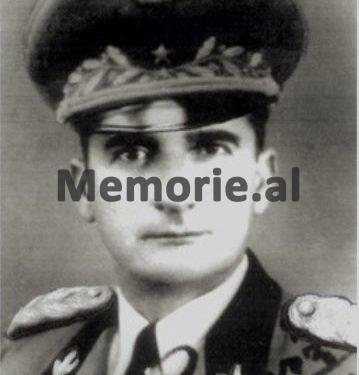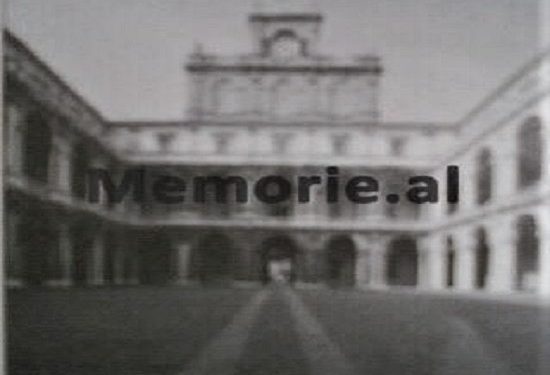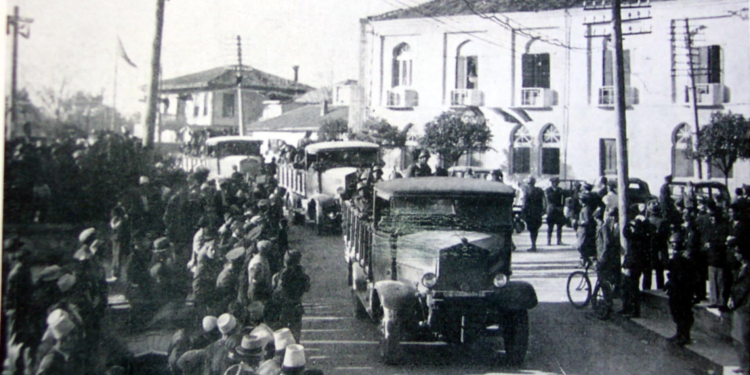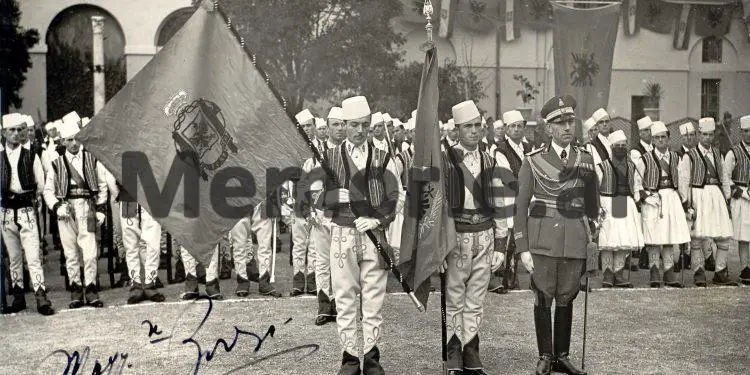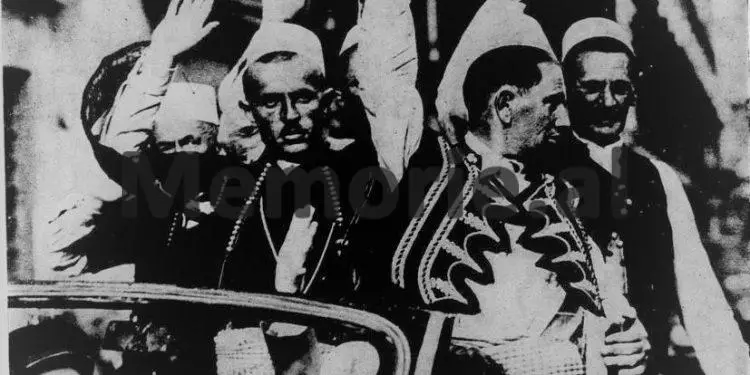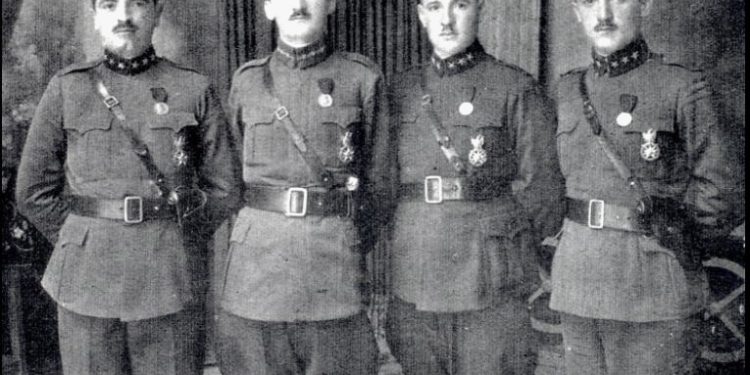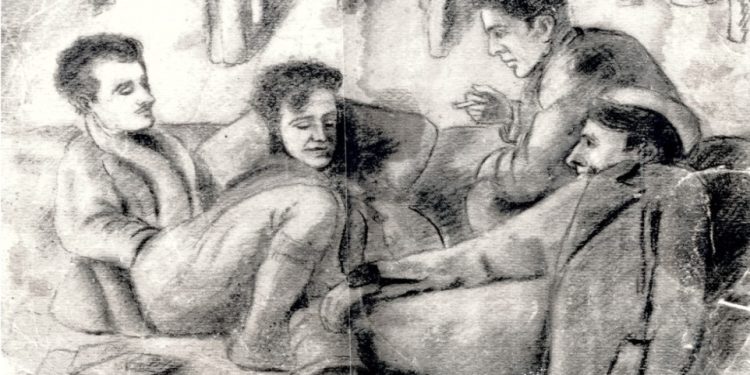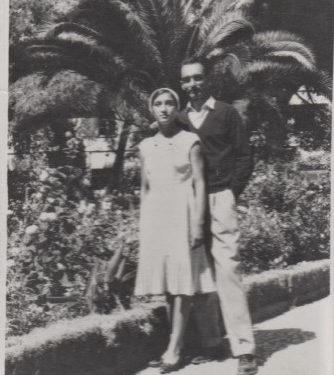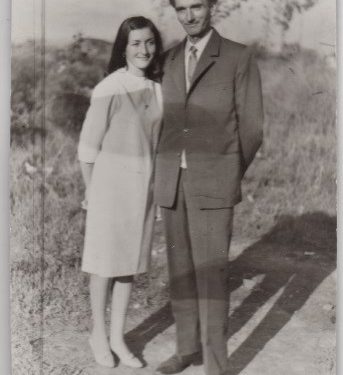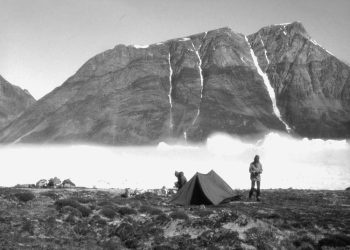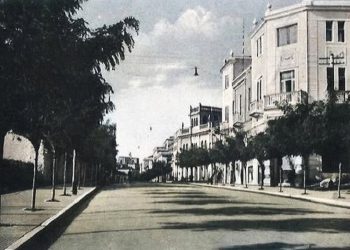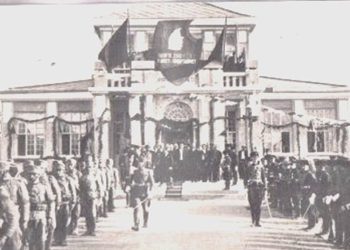By Lek Pervizi
Part Three
THE ODYSSEY OF INNOCENCE
To my brother Valentin, who endured?
47 years in a row the ideological storms
of communism, what’s more, separated
from his wife, a true Odyssey
of the twentieth century.
Memorie.al / When you enter Skuraj and cross the Urdhaza stream, the mountain ascent begins, through the hill of the Lekbibajs. You pass three mills in a row, known as those of Gjin Pjetri, which are built one after the other. You also pass the two-story tower of Ndrec Pjetri, Gjin’s younger brother, and then you encounter a rocky ridge on which a complex of three stone buildings stands, the historical towers known as the towers of Gjin Pjetër Pervizi of Skuraj, the leader of the Kurbin uprising. These buildings dominate the entire valley, formed by the union of the Mat and Fan rivers (a branch of the Mat), up to Milot. It is almost a fortress, which protects and defends the area from the expeditions of foreign invading armies, which could penetrate through that gorge, until they encountered the wall of the mountains of Skuraj, where the towers we mentioned were built.
Continued from the previous issue
The tasks were divided for the assassination of the traitors whose names had appeared in Italian newspapers, and they were assigned by a secret lot, name by name, for each one. One of them had seen his uncle’s name in the newspapers. He took it upon himself to eliminate him. I am not mentioning their names. Because an Italian journalist, who was friends with the Albanians of the Military School, had told them that those names were published by the Italians themselves, to justify themselves before public opinion that the Albanians had called them themselves, to save them from the rule of the satrap and tyrant King Zog, who oppressed the Albanian people.
However, that pre-arranged and false deed cost them dearly. Because the time would come when that game pre-arranged by the Italians against them would be paid for heavily, because the communists would find a reason to shoot, imprison, and intern them. In these circumstances, the “Black Hand” lot was not realized, because it was proven that none of them had expressed themselves in favor of the occupation; it had only been a deception of Italian fascism, to confuse the Albanians and foreigners.
After they found out everything, they held a three-day hunger strike, refusing to eat or drink anything. The School Command was alarmed and took them out of isolation, but it banned them from leaving for another two weeks. They wore the school uniform, but their beautiful bayonets were taken away. Then they were able to leave and came to meet us and get the things they had left in the care of Genci and Nikola. It was then that we found out everything.
But their story was not over. Their so-revolted souls began to find some kind of peace, because it was seen that the military policy of the Rome-Berlin axis (Duce-Hitler) was the cause of all these “Anschlusses,” which began with Austria in 1938, Albania and Czechoslovakia in 1939, etc. They were the preparatory phases of the Second World War, without underestimating the paranoid mania of the Duce, for the recreation of an empire like the Roman one, with himself at the head, as a great leader, Dux (Duce).
Another difficult test came before them, which they responded to manfully. The Italians had decided that all Albanian students of military schools and academies would take the oath. The oath would be taken in the courtyard, or the large square of the Rome School. The rehearsals for the ceremony that would be held on this occasion began, where high personalities of the fascist hierarchy and the Italian government and army would participate. The rehearsals consisted of specific movements, marching, the formation of the Albanian student square, presentation, honors with arms, etc.
They had also invited some Albanian officers who had graduated from these schools, to give more importance to the event. The student committee decided that the rehearsals would all be done regularly, until the oath ceremony. The decision was made that at the moment when the oath formula would be read and they had to answer: “We swear!” they would not answer at all and, all at once, would throw their weapons on the ground! This would be an extremely courageous and sensational act of heroism! They would pay for it dearly, but they didn’t care about that. Whatever happened.
The rehearsals went well, and it was only a matter of when the oath ceremony would take place. But before the real oath was taken, the Italians decided to have a “general” rehearsal (so to speak). Someone had informed, that is, spied! There are always traitors! But the Albanians had not noticed this baseness before.
They appeared in this so-called “general” rehearsal, which they knew was a formality, therefore without the commitment of the oath, and followed the program that was decided by the Italian command. But an unexpected event happened. There in the so-called rehearsal, they saw the presence of some high fascist authorities, from the government and generals of the Italian army. Journalists and photographers. Captain Luigj Mikeli from Shkodra was also there, with two other Albanian officers.
What did these personalities and journalists want at the rehearsals?! What was happening?! The rehearsal continued as such, and when it should have been suspended, because everything had gone well, in terms of the formation of the square, where the students were lined up at attention, the order was given; “honors with arms”!
The entire body of students immediately went into that position. The assigned Italian officer, a colonel, said that now the oath rehearsal would be done, that is, how they should answer when the formula was read. This was a surprise! A trap! How should they act?! They immediately circulated the word that no one should answer, that they should lower their heads, but not throw their weapons, since this was just a “general” rehearsal.
So, when the recitation of the formula ended, the colonel raised his voice and shouted loudly: “Swear!” Not a single voice was heard, and a deathly silence fell. The nearly one hundred Albanian students and academics stood at attention with their weapons in hand, but with their heads bowed. Scandal! The Italian Colonel addressed Captain Luigj Mikeli:
- “Captain, it seems that they do not understand Italian, please translate it into Albanian for them, how they should answer!” The captain replied:
- “If they don’t understand Italian, I don’t know it at all!”
The command, the personalities, and the fascist hierarchy were furious. The investigation and raiding of the halls, beds, mattresses, and shelves began in all the military schools where there were Albanians. Pressure was put on them to find out who had organized it. With no result! After some time, some measures were taken.
Abdyl Këllezi had some communist materials found, and he was interned in Ventotenne, where some Italian communist leaders were locked up. A nephew of Musa Juka killed himself in a hotel in Rome. No other measures were taken. They were allowed to continue their studies. For Valentin and his group of friends, it was the last year of the Rome Military School.
Life was now following its own course. The Albanians and Albania, caught by surprise and in bad faith, were forced to adapt to the times, until they were given the opportunity to fight against the occupier, where the fault lay entirely with King Zog, who, instead of leading the people against the invading enemy, ran away and left the Albanians in the lurch!
In this situation of relative normalization, the Albanian students of the military schools were allowed to continue their studies in the respective branches, mainly at the Modena Military Academy, the most important, and in some other Academy. It was understood that the Italians would keep the effective Albanian army as it was, with its officer ranks, as well as with the uniform with the symbol of the crown of Skanderbeg. It would remain independent and passive, just for formality.
The Modena Military Academy
In June 1939, Valentin and his friends finished the Rome Military School, and in September they began their studies at the Modena Military Academy, the most important one in Italy. Valentin chose the Cavalry branch, along with Ali Ohri and Stefan Bumçi. Others, such as; Asim Zeneli, Ernest Gjeçi, Ndue Lala, Fiqret Hoxha, Minella Naçe, Avdi Brahimi, Shaban Begolli, Nuri Nuçi, Hysen Hysa, etc., were in the Infantry branch, Lek Vuksani in the Carabinieri branch.
Avdi Mati went to the Naval Academy, and Dull Osmani to the Aviation Academy, and so on for the others. They were of course boarders and were given leave on Sundays. On this occasion, Valentin often went to Bologna, a historical, large, and important city, quite beautiful, where he had the opportunity to have fun and meet a beautiful girl.
Thus passed the two years of the Academy, without any specific problem, and in June 1941, he graduated as an officer, with the rank of second lieutenant and was assigned to serve in the “Lancieri Vittorio Emanuele II” Cavalry regiment, with its center in Bologna. He was expecting to be assigned to Albania, like the others, but since the Albanian army was included in the Italian one, the appointments were given by the Italian Ministry of War.
The completion of the Academy and his appointment as an officer was celebrated with great fanfare in our family and among our friends in Tirana, Laç, and Skuraj. That summer, my father had kept him in Tirana, where he had introduced him to his friends and colleagues. They congratulated him and wished him well for the continuation of the family’s fighting tradition. Thus for Valentin, the military career with excellent prospects began.
When he graduated as an officer and was assigned to Bologna, he rented a room in the house of the Manini family, whose owner was Mrs. Manini, a widow, who lived with one of her daughters, the youngest of five. Four of them were married, while the youngest, who had finished high school, was continuing university for history and literature. She was called Maria Gorizia, but they called her Gori for short. She was a beautiful girl, with a perfect “cypress-like figure” and “eyes like an olive and eyebrows like a string,” as the Albanian sings.
Of course, a liking was born between the two young people, and Valentin did not fail to accompany her and entertain her, while maintaining respect and good manners, like a nobleman. He had met other girls, in Rome as well as in Modena and Bologna, but this one had begun to enter his heart and, in short, in Albanian, he had been struck by lightning. He began to take the matter seriously and decided within himself that she would become his wife.
In these circumstances, Valentin found the opportunity to invite her and her mother for dinner, at the Officers’ Palace restaurant, a monumental old building, full of halls with artistic objects, paintings, and other valuable furnishings.
Participation in evening parties and balls organized from time to time on the occasion of official holidays was not lacking either. Thus a kind of familiarity was created, which the mother and daughter had accepted. Cinemas at that time were the most frequented places, where people spent some moments of entertainment, with different films. Even though it was a state of war, American films with well-known Hollywood artists continued to be shown. Valentin often took Gori to the cinema, with her mother’s consent and her own pleasure, as a young girl full of vitality and without prejudice.
The moment came when Valentin decided to show her his proposal. And that summer, one day, he invited her to spend the evening and have dinner at a summer place, with gardens and an orchestra. It was not the first time they had spent evenings at that cafe-restaurant, where they had also gone with her mother. Dinner passed beautifully, and they stayed there for some time, drinking refreshing drinks.
At one moment Valentin took out a small, beautiful box from his pocket, begging her to accept it as a gift. The girl smiled and took the box, thanking him. When she opened it, she was surprised and enchanted; there was a beautiful ring, with a sparkling stone. The proposal was factual, without words. Valentin, full of emotion, was on tenterhooks, waiting for how Gori would react. But she smiled sweetly, with a “grazie” that sounded in Valentin’s ears like a symphony. He took the ring from her hand and put it on the finger of her left hand, telling her that he loved her very much and whether she would accept to become his wife?!
Officer in the Cavalry branch
Bologna, June 1941.
Gori, for her part, blushed on her cheeks and murmured with a half-voice “yes,” throwing her arms around his neck, completely happy. With this embrace, their love was sealed, which would accompany them all their lives. A party was held and the engagement was announced, where her sisters came with their husbands and children, relatives, friends, and neighbors. A dinner was held at the Officers’ Palace, where Valentin’s superiors, commanders, and colleagues also participated.
This was the event that concluded that part of Valentin’s life, which would always remain in his memory as a unique happiness. Later, in unimaginable conditions of suffering, he would recall the engraved verses of Dante: “…Nessun maggiore dolore che ricordarsi, del tempo felice nella miseria” (There is no greater pain than to remember the time of happiness in misery!)
We forgot to mention that Genci, the second brother, had also chosen a military career, that of Aviation. He was attending the Aviation School in Forli, a city near Modena and Bologna. Genci met and went and came with Valentin, and he also met Gori and her family. So it happened that they often went and stayed together. Genci had even had the chance to accompany Gori several times, when military service prevented Valentin. Genci had entered that school the same year that Valentin graduated as an officer.
So Valentin would go and pick up Genci on Sundays, to spend the day in his company, together with Gori. Genci had liked the girl, and he had praised Valentin for that choice. Not only was she beautiful, but she also belonged to a good family, where her father had been a police officer, up to the rank of colonel, but who had died five years earlier. The news of Valentin’s engagement was brought to us by Genci, during the summer holidays, along with some photographs; to introduce us to the girl he had chosen.
We were happy, and especially my mother and grandmother, while my father did not like that matter much, because he had other plans for Valentin. His friends in Vienna and Budapest had asked him to send that boy to them, where they would find a suitable bride among the noble families with whom they were friends.
During that time in Bologna, horse races were also organized, with the participation of young officers from the cavalry units of Italy. It was known that most of the officers of this branch came from noble families with titles: counts, marquises, barons, etc. In one of these important races, Valentin had distinguished himself and had won, taking first place on the podium. He was handed the prize designated by the Duke of Bergamo himself, of the House of Savoy, the most important Prince after the Crown Prince Umberto. Thus, Valentin had gained respect and admiration in his regiment and in the ranks of the Cavalry branch.
Of course, his fiancée, the beautiful Gori, felt happy about Valentin’s successes, with a contained pride within herself. She was a gentle, sweet, and family-oriented girl. Everyone in her neighborhood was happy about her engagement to that handsome and noble boy, who had come to her by chance. The unpleasant side of this story was the war that had gripped the whole world and was threatening Italy, which had chosen to side with Germany, completely different from the First War, where it had stood against it.
This was due to Mussolini’s mistaken policy, which allied with Germany in the Rome-Berlin Axis, where it did not take long for Hitler to be disappointed, because the great military power of Italy, publicly announced by the Duce with bombastic speeches, turned out to be a soap bubble. The entire burden of the war fell on Germany’s back. These were the conditions in which the lives of Valentin and Gori unfolded; who were kept hoping that everything would be settled and that war would end, to allow people to live in peace and prosperity. Memorie.al




